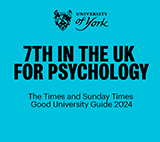
PhD Talks
Tuesday 14 May 2024, 4.00PM to 5.00pm
Speaker(s): Naveen Hanif, Noel Lam
- Naveen Hanif - "Interference effects during language production: An ageing study"
During conversations, speakers sometimes need to produce contextually unexpected words. Competition between this unexpected target word and the contextually expected word could cause interference and slow down language production. Additionally, older adults’ poorer semantic control (e.g., Hoffman, 2018) suggests older adults could experience greater difficulty managing competition between semantic representations during language production. In the current study, healthy younger (n = 41) and older adults (n = 41) named pictures to complete verbally presented sentences. Target words were either a) unexpected but possible endings of the sentence (“What did the bride throw?” Response: Jelly); b) impossible, semantically related endings (“What did the bride throw?” Response: Groom); or c) impossible, semantically unrelated endings (“What did the bride throw?” Response: Receptionist). Both younger and older adults named these three types of unexpected target words more slowly than a neutral baseline, showing producing contextually incongruent words creates interference. Furthermore, this interference was greatest when the impossible target word was semantically related to the context, suggesting overlap in semantic features created additional competition. However, these interference effects did not differ significantly between younger and older adults, suggesting age-related changes in semantic control did not influence language production in this task. - Noel Lam - "The effects of sleep and wakeful rest on novel word learning in children"
Sleep is one state proposed to support new word consolidation. Previous findings (and my earlier PhD studies) show greater improvements in new word recall over one week in children than adults. However, it is unclear whether this is underpinned by developmental differences in sleep architecture or the passive protective benefits of sleep, as suggested by declarative memory benefits following short post-learning “wakeful rest” compared to active wake. The effect of a 10-minute wakeful rest on the recall of newly learned words in 9-10-year-olds (n=166) and adults (planned n = 120) was examined. Participants learned 16 unfamiliar words paired with animal pictures in a group setting. Cued word form recall and picture naming tasks were administered immediately after learning, after 10 minutes of eyes-closed wakeful rest or active wake, during which participants completed timed spot-the-difference tasks, and after a 1-week delay. Children showed comparable word recall performance before and after the 10-minute retention period, but improved significantly after 1 week. Children’s overall performance was predicted by their vocabulary abilities, but tThere was no benefit of wakeful rest. The absence of gains in recall over the initial repeat tests and/or wakeful rest suggests that the gains in memory observed over longer consolidation periods are not likely due to developmental differences in the passive protective benefits of sleep.
Location: PS/B/020
